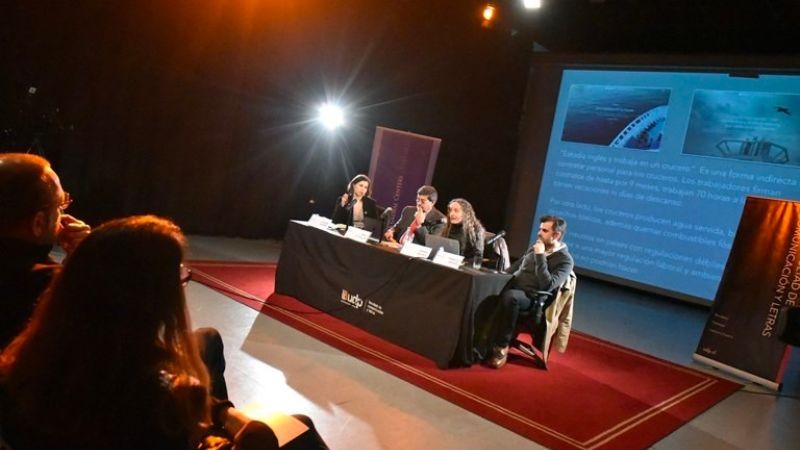Discussion on the Challenges of Investigative Journalism

The Panama Papers and the report “Vacations in no Man’s Sea” were portrayed as two examples of serious, thorough and uncompromising investigate reporting, as well as of good instances of joint-collaboration between media outlets and journalism schools, in an event featuring Ernest Sotomayor, Dean of Student Affairs & Director of Latin American Initiatives at Columbia School of Journalism.
Sotomayor, who visited Chile in early October, participated in the seminar “The Challenges of Investigative Journalism”, which was part of the ongoing series “The Future of Journalism” organized jointly by the Santiago Center, Universidad Diego Portales´ School of Journalism and Columbia’ Journalism School. He also led an Information Session for professionals and students who want to apply to Columbia and participated in the radio-talk show “Palabras Sacan Palabras” in Radio Futuro (You can hear the audio in Spanish here starting at 18”.)
The two cases were presented by Columbia alumni Andrea Insunza, Director of the Research and Publications Center UDP’s School of Communication and Literature, and Francisco Aravena, reporter and anchor at Tele13 radio. After that, Dean Sotomayor emphasized that journalism is the heart of democracy; thus, we need to improve it not only through thorough reporting but also using new technologies. Sotomayor encouraged journalist to work on investigative reporting assuming it is a public service aimed at uncovering the truth.
Sotomayor also manages the J-School’s dual degree program with the School of Journalism at Sciences Po in Paris, and the joint certificate program with IL3 at Universidad de Barcelona in Spain. Since 2005, he has directed the Journalism School’s efforts in career counseling, assisting students in finding opportunities such as internships, fellowships and fulltime employment in print, broadcast and online media fields. He joined Columbia in February 2005 after 16 years as an editor at Newsday and specializes in issues related to print and digital journalism.
In June 2011, he was inducted into the National Association of Hispanic Journalists' Hall of Fame for his efforts to assist the organization in making make journalism more racially and ethnically diverse, from staffing to coverage, and had been named the NAHJ’s President’s Award recipient in 1997.
Watch the seminar here.